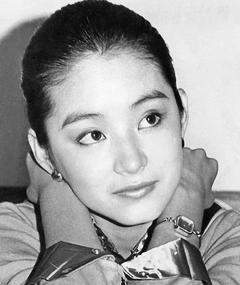

As Tears Go By lacks Wong’s bolder experimentations in storytelling and time progression, but his artistic sensibility is still evident at this early stage.

One can even see the beginnings of the visual hallmarks – how Hong Kong action slow-motion and rapid edits would develop into the visual feast that would be Chungking Express and In the Mood for Love. A scene where Wah ( Andy Lau) realizes his love for Ngor ( Maggie Cheung) is set to a cover of ‘Take My Breath Away’ by Berlin, and Wong manages to make that scene land in a non-maudlin way. There are beautiful compositions that bathe the characters in the deep blues and neon colors of the Hong Kong night life. Yet there are hints of greatness even in this early work from Wong Kar-wai. Also, Wong had a lot of competition from the likes of John Woo and Ringo Lam. Tears has many hallmarks of that genre – the intense violence, the heightened emotions, even the slow motion shots. In all honesty, if viewers back in the late 80’s had seen As Tears Go By and dismissed it as yet another Hong Kong gangster movie, they would have been somewhat warranted.

We await hearing -and seeing- what Wong is able to express when the next of his pending projects comes to fruition, but for now, we hope you enjoy our Retrospective on Wong’s cinema. In light of the pandemic and the ‘new normal’ that awaits, Wong’s intense focus on love, loneliness, and identity in his work is able to resonate with audiences from a novel perspective. With almost ten years without a single new project from Wong Kar-wai, we are poised and eager for the auteur to return. In celebration of the release of the World of Wong Kar-wai boxset from the Criterion Collection later this month, we have chosen to commemorate the Hong Kong auteur in our Retrospective Roundtable.


 0 kommentar(er)
0 kommentar(er)
